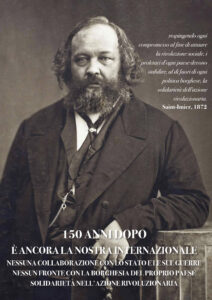Responsibility claim for the arson attack against MARR vehicles and warehouse in solidarity with Alfredo Cospito, Anna Beniamino, Juan Sorroche, Ivan Alocco, Toby Shone, Giannis Michailidis and the 11 turkish revolutionaries on hunger strike (Carasco, Italy, November 26, 2022)
Chiavari: Fire at Marr vehicles and warehouse
Dinner is served, tonight flambé.
On Saturday, November 26, a slightly overcooked dinner was served. We set fire to a dozen vehicles, the warehouse and the ventilation system of Marr in Carasco [near Chiavari, in Liguria], a company that profits from the distribution of food in state prisons. That night it was its managers who swallowed a bitter pill. With this gesture we want to send all our solidarity to Alfredo currently on hunger strike to the bitter end because of his detention under the 41 bis regime.
Probably, given their very nature as servants, their inability to act without being commanded by a superior, it is impossible for guards and men of state to understand, but against us 41 bis will have no effect. We don’t need puppeteers from within directing our actions, and if they think that by burying our comrade alive they can stop our tensions, they are sadly mistaken. It will only unleash more anger and solidarity.
We will not stop until Alfredo is out of 41 bis.
Solidarity with Anna, Juan, Ivan and Toby, fighting from inside with him, solidarity with Giannis Michailidis and the 11 Turkish comrades detained by the Greek state who are also on hunger strike to the bitter end.
We stand by the comrades affected by Diamante operation.
Long live Anarchy
Source: La Nemesi

 yours. About the ‘Diamond’ investigation]
yours. About the ‘Diamond’ investigation]